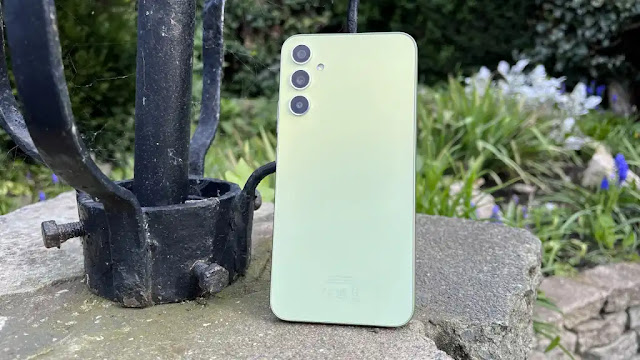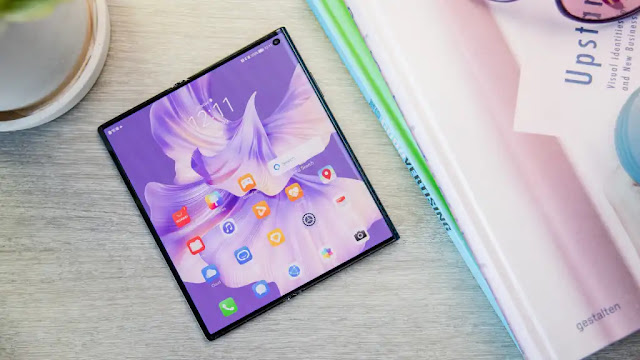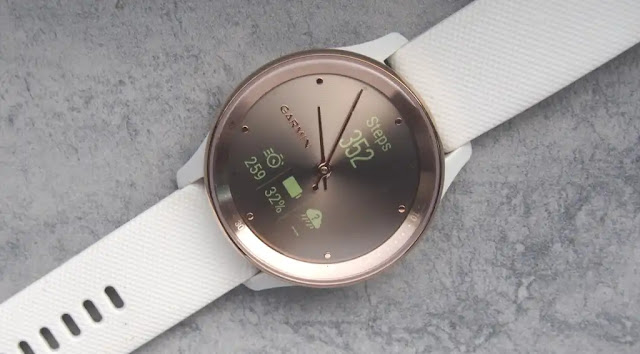What a surprise: the most expensive Microsoft Surface is the best one. But do you need to spend over £2,000 on the 15in Surface Book 2? Find out in our full review.
Should I Buy The Microsoft Surface Book 2 15in?
Our Verdict
- While an astonishingly capable and beautiful device, the Surface Book 2 is too much laptop for the average buyer. Microsoft knows it too, hence the availability at under £1,000 of both the Surface Laptop and Surface Pro.
- But the Surface Book 2 remains its hero product. The industrial design is cumbersome and won’t be to all tastes, but we love its proud bulk and desktop power. The keyboard and display are best in class and the clever integration into the base of a high-end GPU is commendable.
- It is a touch off perfect because of the power issue at full capacity, a bad backlight on the keyboard and its undeniably cumbersome design.
Price When Reviewed
- From $2,499
It has taken a few years for Microsoft’s Surface line to establish itself in the computer hardware market, late as it was to get into the game. The first Surface device launched in 2012, two years after the iPad and many more after the MacBook.
With premium prices but admittedly excellent build and specs, the Surface line of computers is growing. The recent Surface Go is proof Microsoft is confident this is where Windows 10 devices are going and that people will buy them.
Not many people will be able to justify buying this 15in Surface Book 2. A laptop/tablet hybrid, it is an absolute joy to use but is overkill for the average consumer in the same way a high-end MacBook Pro is.
It’s less compact but more powerful than the Surface Laptop and Surface Pro. If you can afford it and need it, it’s the premium Surface line choice.
Price And Availability
The 15in Surface Book 2 starts at exactly the same price in the UK as the 15in MacBook Pro at £2,349. This is a lot more than the £1,149 13.5in Surface Book, but you’re getting a much more capable machine.
You have to go for a Core i7 and at least 16GB RAM and 256GB storage for the base price. The model we reviewed had 512GB storage and sells for £2,749 while upgrading to a 1TB hard drive maxes out the Surface Book 2 at £3,149.
In the US, the 15in Surface Book 2 starts at $2,499.
For the specs you get, particularly the detachable engineering element and included discrete GPU, this is actually industry-reasonable pricing. But it’ll still give most casual buyers a heart attack at the thought of forking out for it.
Design And Build
The Surface Book 2, like the incredibly similar first generation, is a fine piece of industrial engineering. While the Surface Go, Pro and Laptop all have fancy Alcantara material keyboards, the Surface Book keeps it strictly metallic.
It’s a 2-in-1 convertible with a display that detaches from the base. In this 15in version, the base holds a dedicated Nvidia GPU and its own fan system.
The design suits the 15in model more than the 13.5 – the larger size owns its space on your worktop as a desktop class machine albeit in laptop form. The unique space age hinge holds up a robust screen in a design that is still unique (though it's a polarising look - you might hate it).
The base of the device is a hardy silver magnesium build that doesn’t try and hide its heft, though it’s attractively slim when in laptop mode. The trackpad isn’t as large as it could be but it’s best in class for accuracy and responsiveness while the full size keyboard is fully backlit, but it will annoy some that this is a laptop that doesn’t close flat because of the design choice.
It houses a pro-pleasing two USB 3.1 Type A ports (ports no longer found on any MacBook Pro Apple sells) a USB-C port, SD card reader and the proprietary Surface Connect port. There’s also a Surface Connect port on the display for docking with the base, or charging if disconnected.
The base very gently raises the keyboard at a subtle angle for the screen to close onto. The fully adjustable hinge gives great flexibility of up to 50 degrees to the detachable display that you can have in a drawing or viewing mode as well as a standalone tablet.
You can find similar versatility in Apple’s iPad Pro line, but they are limited to 12.9in screens and the walled garden of iOS. If that’s not enough for you then the Surface Book 2 offers full Windows and Core i7 power, but admittedly in a much bulkier package – the screen and base together weigh 1.9kg.
The tablet display has good cooling vent integration (there are fans in the base only) all around its grilled edges that also house a headphone jack and power and volume buttons. The lid is clean save for the Windows logo and a small camera.
This is not as svelte as the Pro or the Laptop but it was never meant to be – it is this design and size to cater for the demands of the professional market.
Apple still has the best trackpads in the game with its non-mechanical Force Touch efforts, but the Surface Book trackpad is the best one on a Windows laptop. It’s a tad small on this 15in model but is offset by a phenomenal keyboard.
Where Apple has gone for shallow butterfly mechanism keys, Microsoft has stuck with lovely responsive keys that have just the right amount of travel for our taste. It’s comfortable to type on all day, and so it’s a shame that the backlight to the keys is awful.
It only looks good on the third and highest brightness and on the lowest setting means you can’t see what some of the keys are and is a weirdly slack oversight on otherwise extremely competent hardware. Admittedly it's clearer in the dark but on most occasions we turned it off completely.
Screen
The 15in display looks incredible. It’s a 3:2 3.2K IPS LCD (3240x2160, 260ppi) with full 10-touch input with the Surface Pen or your fingers. Despite being detachable the Surface Book best performs as a laptop with display docked to the base.
The industry move to 3:2 ratios is a pleasing one. Most modern apps are designed to best fit in these size displays unlike the traditional 16:9, and 3:2 is conducive to multi-tasking while maintaining a compact as possible form factor.
If you do want to use it as a 15in tablet you can, but it’s difficult to hold with one hand. We only used it to draw directly onto when detached and on a table, something you can’t do in laptop mode because of the hinge.
Colour reproduction is stunning and while Microsoft will try to upsell you to the Surface Studio if you are a graphic designer or digital artist, the Surface Book can more than cope in this department.
The Core i7 chip is in the tablet display rather than the base and uses a passive cooling system instead of a fan, meaning this is an insane fanless Core i7 when detached – though graphical performance takes a hit given the dedicated GPU in the base unit.
Core Specs And Performance
The 15in Surface Book is functional. It is not an ultrabook like the MacBook or Dell XPS 15, and measures a fairly hefty 343 mm x 251 mm x 15-23 mm. Within this less than portable construction though is one hell of a computer.
Processor, memory and storage
On the 15in model you get 8th Gen Intel Core i7-8650U quad-core processor that can peak at 4.2GHz, and it’s the same chip no matter which configuration you go for unlike on the 13.5in. Similarly, all models of the 15in ship with 16GB 1866Mhz LPDDR3 RAM.
Storage is either 256GB, 512GB or 1TB PCIe SSD depending on your needs or budget.
The most interesting part of the set-up is the Nvidia GTX 1060 discrete GPU Microsoft has put in the base unit of the Surface Book. This, along with 6GB GDDR5 graphics memory means the laptop can cope with high-end, graphically intense gaming as well as the creative design functions it is marketed for.
This makes the high-end Surface Book 2 an incredibly capable machine. It doesn’t drop frames even when running games like Rise of the Tomb Raider, though you should be wary of a flaw picked up by our transatlantic colleagues at PC World.
Microsoft has integrated a user controlled power mode slider so you can control whether you want better performance of better battery life. It was found that if you run the Surface Book clocked out graphically and plugged in on best performance mode, it actually can’t charge, and loses power despite being plugged in.
It’s a minor point in a machine that isn’t sold on its gaming prowess, but it’s enough of a flaw on such an expensive laptop that you should consider whether or not it bothers you. If you intend to game on it, it probably will.
The upgrades to the processor and GPU are welcome in the Surface Book 2 given the design is basically identical to the original model that was announced in 2015. As our benchmarks show, it got the highest score we’ve ever seen on the graphics-heavy 3D Mark test, beating the smaller Surface Book 2 and Dell’s high-end XPS 15 2-in-1.
Interestingly though the Dell scored higher on the standard PC Mark 10 test that tests computing power and the Geekbench 4 scores show it’s not much further ahead its little Surface bro, and behind last year’s high-end MacBook Pro.
But benchmarks are just that sometimes – you can’t read too much into differences when all the machines compared are so capable. In all our testing this computer didn’t hiccup even for a second and was a dream to use for day to day tasks, and didn’t huff when we pushed it with multi-tasking and gaming.
Surface Pen and Surface Dial
No Surface is complete without the (maddeningly still not included) Surface Pen. The £99.99 accessory is great though, offering 4,096 levels of pressure sensitivity and some of the best response and latency we’ve seen on a Windows tablet screen. It magnetically clips to either side of the tablet for easy stowing.
Using it with Sketchable was a pleasure and the 15in display feels incredibly generous compared to the relative pokey 10.5in iPad Pro.
The also optional £89.99 Surface Dial is a niche add on that only creative pros really need. It can rest on a table or on the display itself to act as a navigation tool. Click down and rotating it in various programs allows you to, for example, change the colour of a brush mid-stroke or undo incremental inputs.
In other simpler apps it can simply zoom or scroll. You might not need it but it’s something we can see being indispensable if you find a specific use in a professional app you use on a daily basis.
The Surface Book 2 retains two USB 3.1 Type ports (hooray) proving its disappearance is premature and annoying from rival laptops from Dell and Apple. There’s a USB-C 3.1 port which can be used for power delivery to the tablet but is primarily for attaching monitors or docks and syncing smartphones.
There’s the Surface Connect port too for charging. The Surface Book also supports two 4K monitor outputs at 30Hz through the USB-C port or the £189.99 Surface Dock, or one 4K monitor via just the USB-C port.
There’s a 5Mp front facing camera that takes care of Windows Hello login and authentication and can record HD video at 1080p. You also get an 8Mp rear facing camera with the same recording capabilities that will likely be mostly used in a pro capacity for quick pictures to notate given the flexibility of the form factor.
Topping off the full to brim feature set are dual mics, front facing stereo speakers with Dolby Audio Premium compatibility, 802.11ac Wi-Fi, Bluetooth 4.1 (not including 5.0 a slight oversight) and, exclusive to this 15in version, Xbox Wireless built in so you can connect an Xbox controller straight to the laptop with no extra hardware or software.
Battery Life
Battery life is outstanding, class-leading, even. In our standard test it got the best score ever for a laptop at Tech Advisor with a stunning 17 hours 15 minutes. This is done looping a video file at 40% brightness until the battery dies.
This means it lasts as long as Microsoft says it does under these conditions, and beyond any rival that we have tested at the time of writing in July 2018. There are two batteries, one in the tablet and one in the base, necessary for a 2-in-1.
In real world use you aren't going to get 17 hours out of it, but it regularly comfortably lasted us a whole work day away from the power. It's a laptop that's heavy to carry around but you could take it out for the day without the charger, and that is awesome.
Software
The 15in Surface Book 2 runs Windows 10 Pro as standard. This version costs £219.99 if you buy it separately and basically exists so that business and enterprise managers can kit out their workforce with a fleet of them and have all the right security and IT management features in place.
For the average consumer it is a little overkill but at no extra cost you can’t complain. Even though the Microsoft Laptop is a lot cheaper, it’s still annoying that it comes with the stunted Windows 10 S.
As you’d expect, everything runs flawlessly and Windows 10 is much more fun to use on an extremely capable piece of hardware. Touch input is greatly welcomed and had us frustratingly accidentally prodding at our non-touch MacBook screen during testing. If you’re not convinced of touch on a laptop having not used it, you really have to try it. You’ll be converted.
Tablet mode on Windows 10 still sucks though, and is a reminder of the dark days of Windows 8. It’s jarring to use a device with one software set up and then be taken into a stunted version when you disconnect the display. We set the Surface Book to not go into the mode and while it’s odd using a full Windows 10 tablet, it’s still preferable.






















%20Review.webp)

0 comments:
Post a Comment